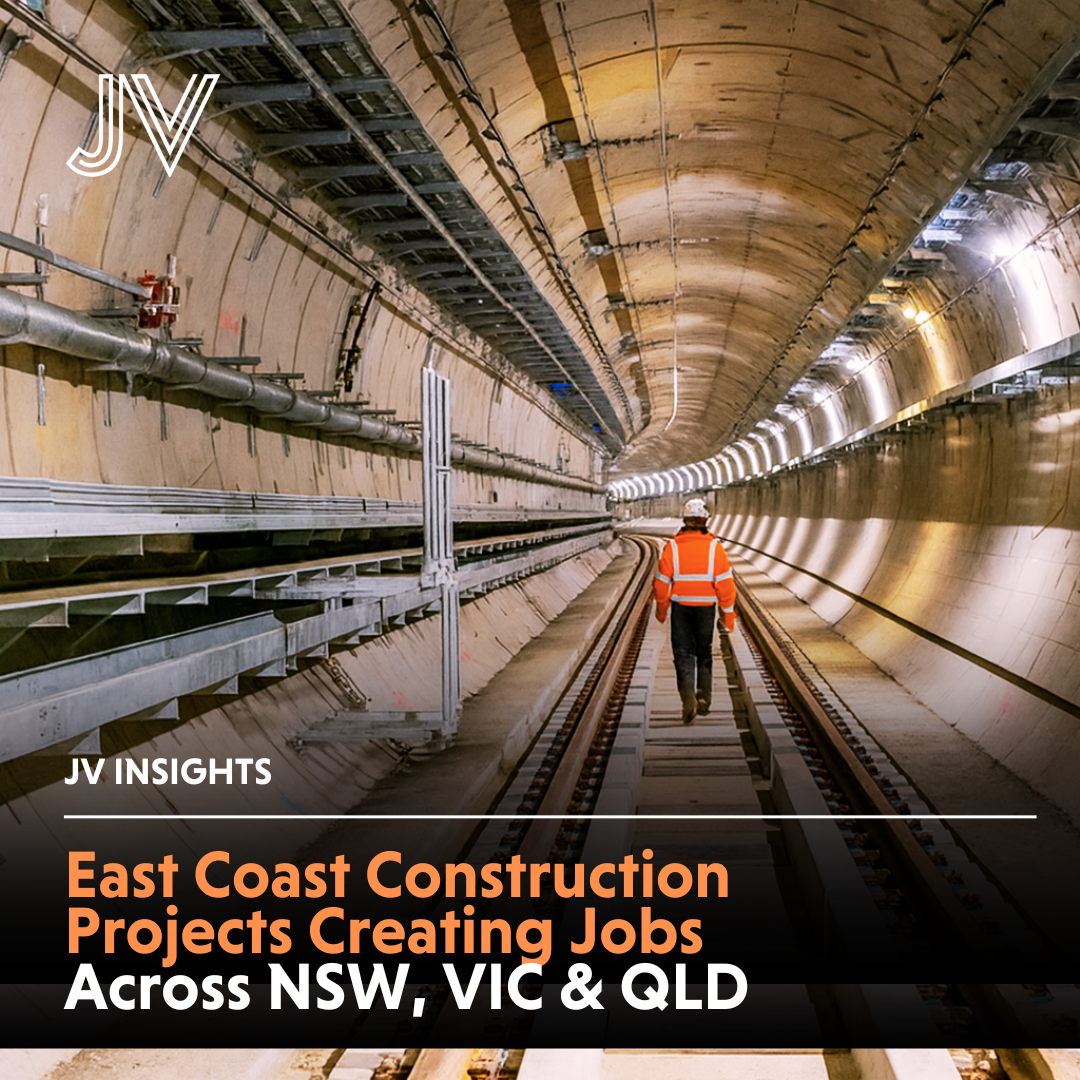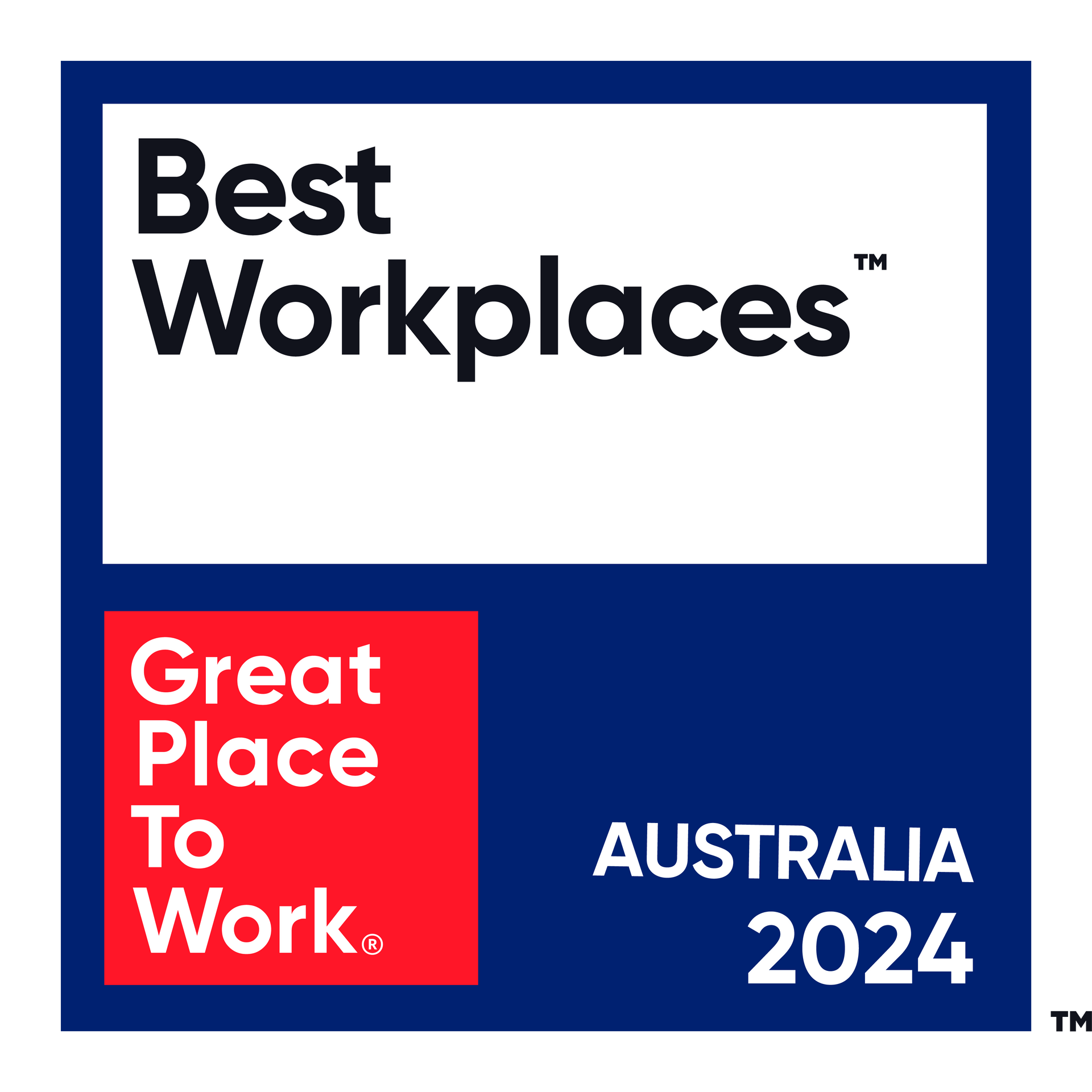The Highest Paying Construction Jobs
The Australian construction industry continues its upward trajectory with the government forecasting an almost 6% growth across the sector, or close to another 70,000 jobs by the end of 2026. This is great news if you’re looking for a new construction role.
But what’s even better news is the fact you’ll earn a higher weekly wage than the average Aussie worker ($1,380 per week compared to the all industries average of $1,250). As the cost of living continues to bite, that’s a pretty big silver lining!
Here we’d like to share our rundown of high paying construction jobs, using the latest industry research from our recruitment experts across our Brisbane, Geelong, Gold Coast, Melbourne, and Sydney offices. It’s the perfect intel if you’re eager to climb the construction ladder.
We’ve also included important information about what’s driving demand for these positions, so you’re fully informed about the latest trends at play in our industry.
1. Construction Design Manager Salary
Construction Design Managers are in great demand, as they’re a highly specialised bunch in very short supply. They bridge the gap between the design and construction project phases, ensuring that design intentions are accurately translated into tangible results on-site. Their role is pivotal in ensuring a seamless transition from conceptual designs to fully realised structures.
As such, average annual salaries are $145,000, but the salary pay range can vary greatly, from $120,000 to over $250,000 — a fair chunk of change!
2. Construction Manager Salary
A Construction Manager oversees the planning, coordination and execution of construction projects, ensuring they’re completed on time, within budget and adhere to quality standards and regulations. A big part of their day involves liaising with clients, architects, engineers, construction personnel and other stakeholders, as well as managing multiple site teams.
A high-level job naturally commands high level pay. A Construction Project Manager salary averages out at $140,000, with pay packets in the lower range sitting around $120,000 and climbing beyond $350,000 at the higher end in some instances.
3. Construction Project Manager Salary
Coming in at number three on the list of high paying construction jobs are Construction Project Managers. These professionals are tasked with the job of planning, coordinating and supervising projects from inception to completion.
A Construction Project Manager salary averages $125,000. The lower end is around $100,000, while the top end can see figures enter the $300,000 arena.
4. Construction Foreperson Salary
Master communicators, Construction Forepersons are the intermediaries between their crew and higher-level management. Their primary task is supervising all that goes on in the construction site, from overseeing the day-to-day operations, to ensuring work progresses efficiently and safely, to managing teams of workers and subcontractors. It’s a multifaceted role that involves a mix of troubleshooting and managing resources to guide projects to timely and successful completion.
Australian Construction Forepersons take home an average annual pay packet of $117,000, but the salary range is quite large – the lower end at $110,000 and the upper at $190,000.
5. Senior Estimator Salary
You could say a construction Senior Estimator holds the crystal ball. They’re involved in both the financial and preparatory project stages, forecasting costs at all levels - materials, labour, equipment and so on. At this senior level, they usually also have expertise in identifying potential risks and changes in market conditions that might affect the project's financial outcome.
As one of the high paying construction jobs, Senior Estimators average $123,000, with a very big range from the lower end of $85,000 to well in excess of $180,000. Junior Estimators’ starting salaries range from $50,000 to $80,000.
6. Crane Operator Salary
The industry’s big lifters, Crane Operators use their cranes to move and position heavy objects at construction sites. While they need to be experts in working their machinery (not to mention weight limits and wind conditions!), they also have to be up to speed on safety, checking it over thoroughly to ensure it's in good working condition. Another crucial part of their role is to coordinate with other ground personnel, such as riggers and doggers.
Crane operators have an average pay packet of $82,000. The lower end sits around $73,000, while those with extensive experience can command up to $125,000.
What’s Driving Demand for Construction Jobs?
There are many reasons behind the demand for these high paying construction jobs. The most obvious is Australia’s infrastructure boom, much of it fuelled by significant investment from all sides of government into projects like road upgrades, rail projects, airport expansions and port developments. Each one requires a Construction Manager, Construction Project Manager, Foreperson and Estimator, with some so large they require dozens!
Australia’s burgeoning population has also resulted in plenty of residential construction works, from city-based dwellings to sprawling suburban estates. This growth has also led to further commercial constructions, both new and renovated.
Beyond traditional residential and commercial construction, there's been a huge uptick in sectors like renewable energy (e.g. wind farms, solar farms) and sustainable development (i.e. green buildings). These require specialised skills, resulting in an unprecedented demand for Construction Design Managers with a good understanding of sustainable materials, energy-efficient systems and green building standards.
As Aussie construction projects become increasingly intricate and involve advanced technologies and multifaceted designs, roles like Senior Estimators become ever more crucial. Their expertise in accounting for complexities in cost calculations is highly valued.
Summary
From urban transformations to innovative tech shaping your work, it’s clear the demand for construction professionals will continue for the foreseeable future. And if the jobs on this list are anything to go by, that’s translating to some impressive construction salaries!
Here at JV Recruitment, one of our main roles is to support our candidates in their quest to find rewarding construction jobs. If you’ve got experience in any of the areas listed here or would like to find out more about how you can take that next step into a higher-paying construction role, please feel free to get in touch with one of our specialist recruiters. We have offices in Brisbane, Geelong, Gold Coast, Melbourne, and Sydney and would love to help you find that next great construction job, whether permanent or contract.
* Quoted salary figures sourced from Seek, Payscale Australia and Glassdoor Australia. These are averaged figures across Australia – they will vary depending on location and job description.








